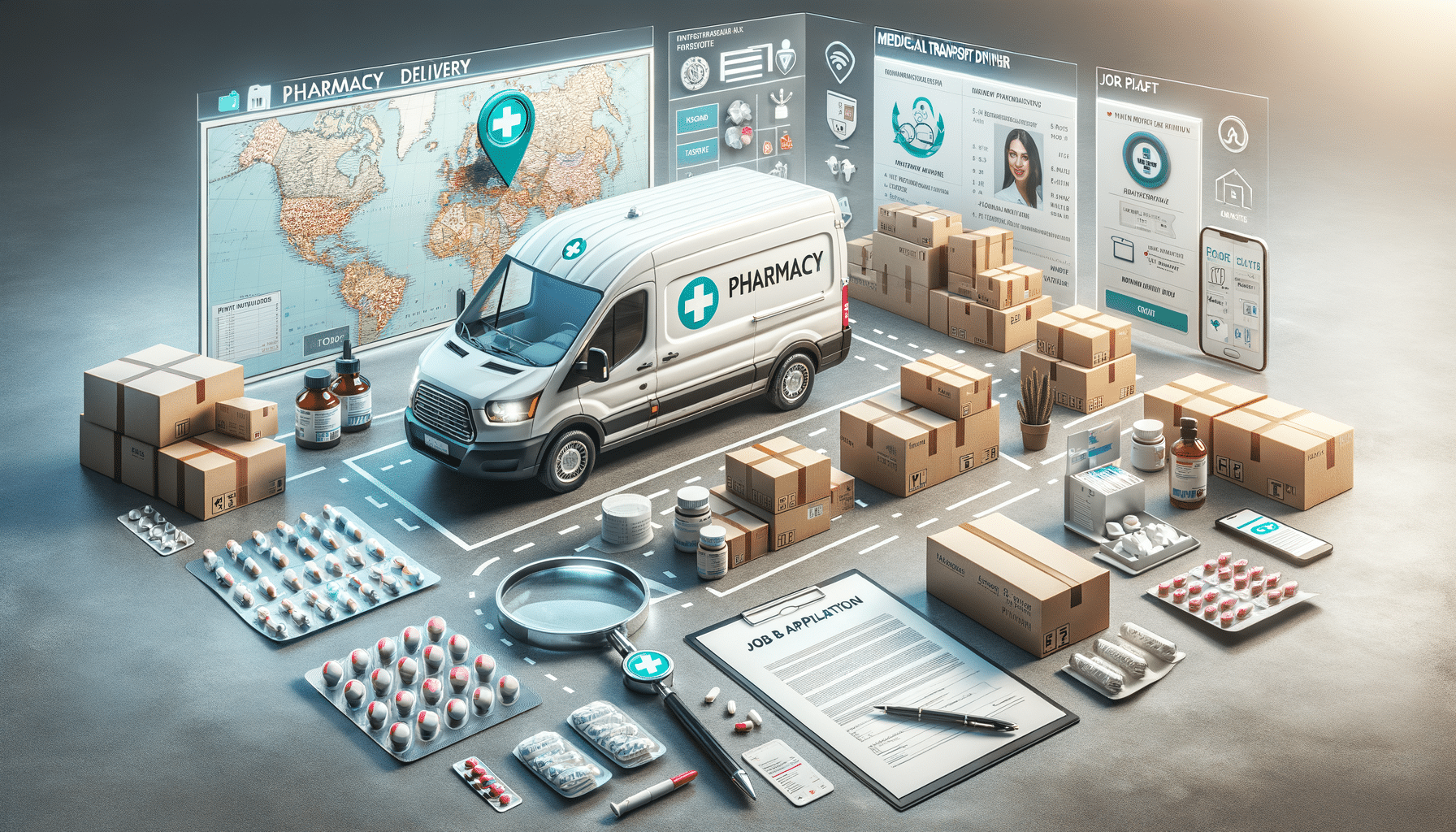
How to Find and Apply for Medicine Delivery Positions
Introduction to Pharmacy and Medical Delivery
In recent years, the demand for pharmacy and medical delivery services has surged, driven by the increasing need for convenience and safety, particularly in times of health crises. As healthcare systems evolve, the role of medication transport drivers has become crucial in ensuring patients receive their medications promptly and efficiently. This article explores the intricacies of pharmacy delivery, medical delivery, and the responsibilities of a medication transport driver, providing insights into the skills required and opportunities available in this growing field.
The Growing Demand for Pharmacy Delivery Services
Pharmacy delivery services have become essential in modern healthcare, offering a lifeline for patients who cannot easily access their medications. The convenience of having prescriptions delivered directly to one’s doorstep is invaluable, especially for those with mobility issues, chronic illnesses, or living in remote areas. The rise of online pharmacies and telemedicine has further fueled this demand, making pharmacy delivery a standard offering rather than a luxury.
Several factors contribute to the increasing popularity of pharmacy delivery services:
- Convenience and Time-Saving: Patients save time and effort by avoiding trips to the pharmacy.
- Increased Accessibility: Delivery services ensure medications reach those in rural or underserved areas.
- Enhanced Safety: Reduces exposure to illness, particularly important during pandemics.
- Improved Adherence: Timely delivery helps patients adhere to their medication schedules.
As the healthcare landscape continues to change, pharmacy delivery services will likely play an even more significant role, offering opportunities for those interested in entering this field.
Understanding Medical Delivery and Its Challenges
Medical delivery services extend beyond pharmacies, encompassing the transport of medical supplies, equipment, and even biological samples. This sector is vital for maintaining the operational efficiency of healthcare facilities and ensuring patient care is uninterrupted. However, medical delivery presents unique challenges that require careful consideration and management.
Key challenges include:
- Regulatory Compliance: Adhering to strict regulations governing the transport of medical goods.
- Temperature Control: Ensuring temperature-sensitive items like vaccines are transported under proper conditions.
- Timeliness: Deliveries must often be made within tight timeframes to avoid compromising patient care.
- Security: Safeguarding sensitive materials from theft or tampering.
Despite these challenges, medical delivery remains a critical component of healthcare logistics, offering numerous opportunities for those willing to navigate its complexities.
Roles and Responsibilities of a Medication Transport Driver
Medication transport drivers play a pivotal role in the healthcare delivery system. Their primary responsibility is to ensure the safe and timely delivery of medications and medical supplies to patients and healthcare facilities. This role requires a combination of logistical skills, attention to detail, and a strong sense of responsibility.
Key responsibilities include:
- Route Planning: Efficiently planning delivery routes to optimize time and resources.
- Adhering to Safety Protocols: Following guidelines to ensure the safe handling and transport of medications.
- Customer Service: Interacting with patients and healthcare providers professionally and courteously.
- Documentation: Maintaining accurate records of deliveries and handling any discrepancies promptly.
Medication transport drivers must also possess certain skills, such as strong communication abilities, organizational skills, and the ability to work independently. As the demand for delivery services grows, so too do the opportunities for individuals interested in pursuing a career in this field.
Finding and Applying for Medicine Delivery Positions
For those interested in pursuing a career in medicine delivery, understanding the industry landscape and honing specific skills are crucial. The first step is to research potential employers and understand the requirements of the role. Many companies seek candidates with a clean driving record, excellent organizational skills, and a customer-focused mindset.
To increase your chances of success, consider the following tips:
- Enhance Your Skills: Consider taking courses in logistics or customer service to boost your qualifications.
- Network: Connect with industry professionals through networking events or online platforms.
- Craft a Strong Application: Highlight relevant experience and skills in your resume and cover letter.
- Prepare for Interviews: Be ready to discuss your understanding of the role and how you can contribute to the company.
By taking these steps, you can position yourself as a strong candidate for medicine delivery positions, opening the door to a rewarding career in a growing field.


